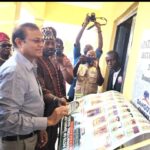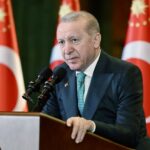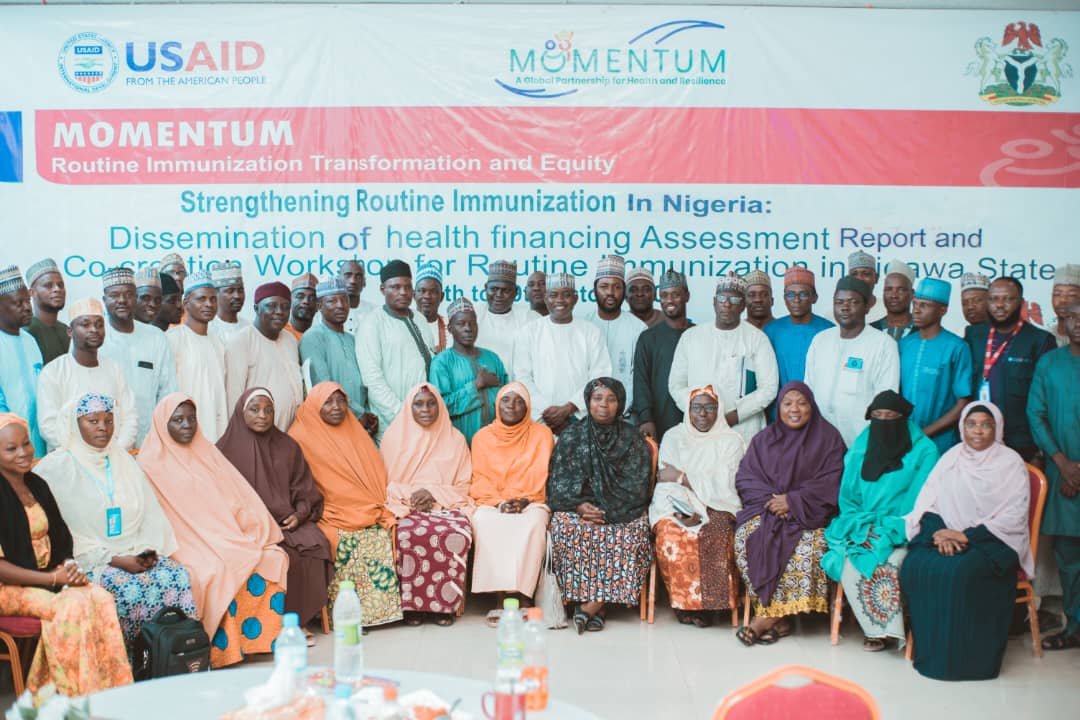By Sarafina Christopher
MOMENTUM Routine Immunisation Transformation and Equity (M-RITE) project in partnership with the Jigawa government has concluded plans to carry out a study to improve routine immunisation in Local Government Areas of the state.
A statement by Jose Gonzalez, the Senior Programme Officer, Results for Development (R4D) said that the Permanent Secretary in the ministry, Dr Salisu Muazu disclosed this in a keynote address delivered on behalf of Dr Muhammad Kainuwa, the state’s Commissioner of Health.
It quoted the commissioner as applauding the collaborative approach to the study and the development of an action plan.
The address was delivered at a workshop on “Strengthening Routine Immunisation in Nigeria: Dissemination of Health Financing Report and Co-creation Workshop for Routine Immunisation in Jigawa State’’ which was held in Dutse.
Muazu said, “The government recognises the importance of a transparent and partnership-oriented approach.
“We commend MOMENTUM’s commitment to actively involving us in this funding landscape study, from inception to this dissemination workshop.
“We look forward to validating findings and co-creating the solutions that will benefit our people,” he said.
Dr Usman Ahmed, Deputy Director of the Planning Research and Statistics Department at the ministry, and a co-investigator in the study emphasised that findings on the funding landscape study would provide a valuable roadmap for enhancing resource mobilisation in the state.
“This is an effort that we are proud to have played a part in.
“While these findings highlight significant challenges, they also unveil numerous opportunities for action.
“During the co-creation workshop on day two, barriers to mobilising domestic funding were discussed, leading to several solutions and action points needed to increase the prioritisation of routine immunisation in local government plans,’’ Ahmed said.
Dr. Arowolo Ayoola, the Lead Consultant, emphasised that part of the objectives of the workshop was to facilitate practical solutions to routine immunisation.
“We are optimistic about the positive changes that the local solutions emerging from the workshop will bring to funding routine immunisation in Jigawa State.
“By addressing challenges and embracing opportunities, the state is advancing toward strengthening healthcare services, including routine immunisation,’’ he said.
The M-RITE project is funded by the United States Agency for International Development (USAID) and implemented by JSI Research and Training Institute, Inc. along with PATH, Accenture Development Partnerships, Results for Development (R4D), and CORE Group.
The research reveals that Jigawa state allocates a significant 17 per cent of its budget to healthcare, the second-highest allocation after the education sector, underscoring the state’s commitment to citizens’ well-being and offering an opportunity to increase funding for routine immunisation.
The study also emphasizes the importance of reducing the state’s reliance on donor funding to ensure sustainable funding for routine immunization.
While Jigawa state’s commitment to healthcare is evident, the study has uncovered critical challenges.
One of the most pressing of such challenges is the lack of a dedicated budget for the funding of routine immunisation activities in the plans of local government areas.
This is in spite of the local governments in the state being responsible for overseeing routine immunisation through Primary Health Centres (PHCs).
The study also revealed insufficient coordination among health officers at the local and State levels.
Additionally, their limited experience with the health budgeting process and a general lack of knowledge about procedures during the annual budget preparation are hindering the efficient utilisation of available domestic funding mechanisms. (NAN) (www.nannews.ng)
=======
(Edited by Emmanuel Yashim)












